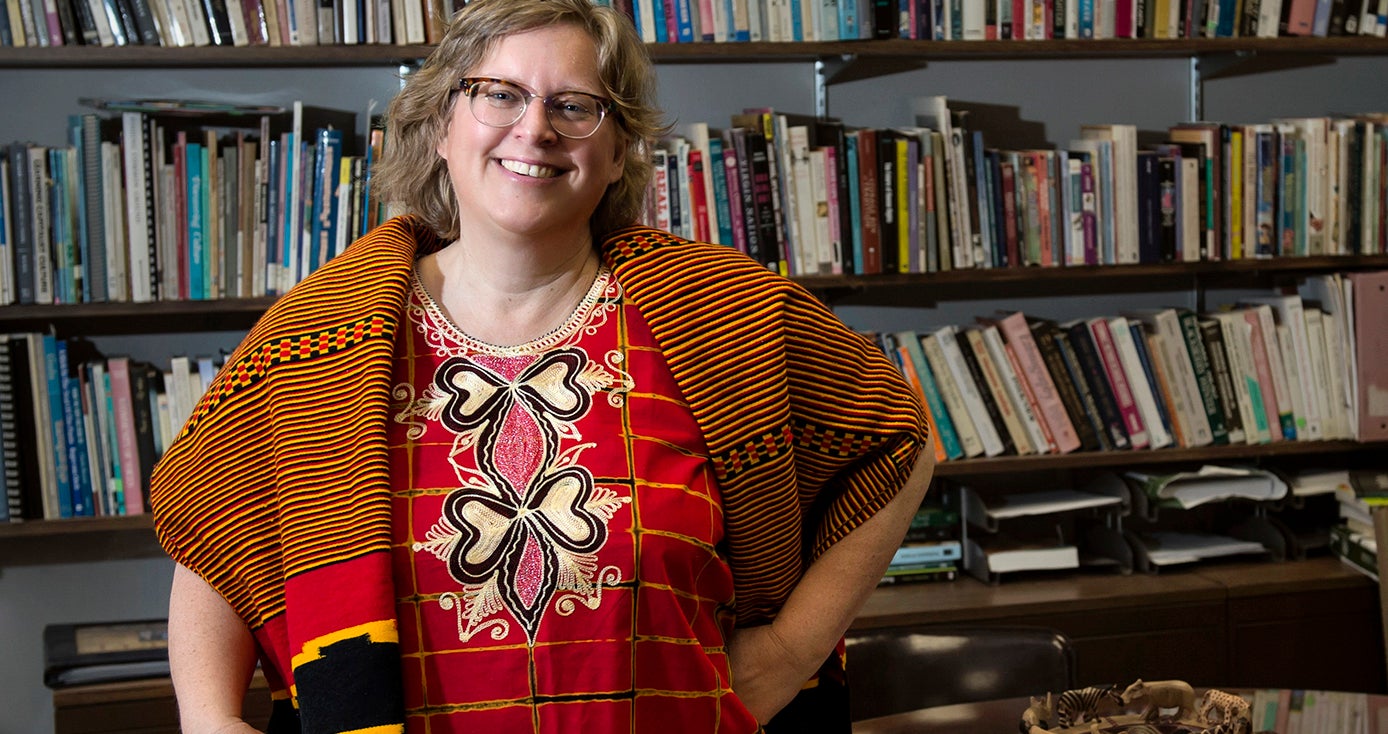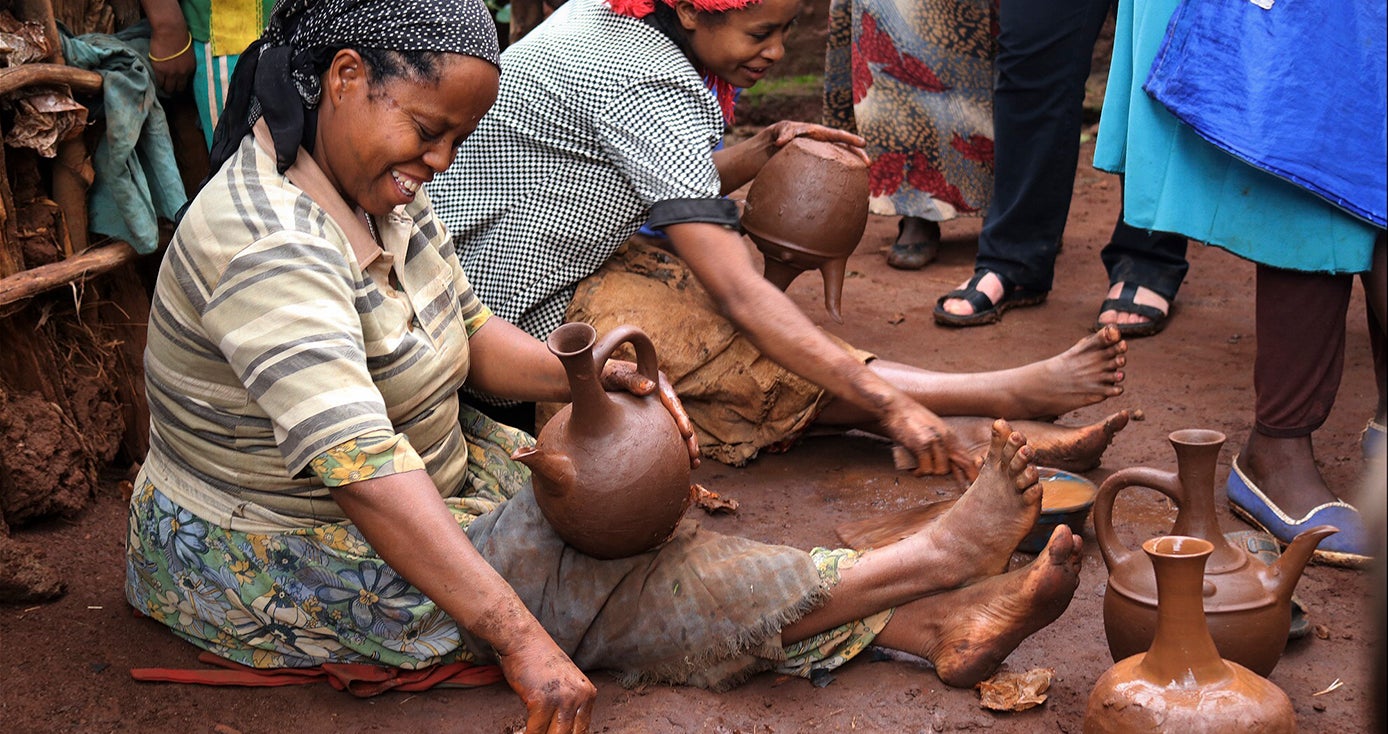
Subscribe to Pittwire Today
Get the most interesting and important stories from the University of Pittsburgh.Educators Team Up to Develop Flexible Curricula on Ethiopia for K-12 Students
The development of a rich new curriculum focusing on Ethiopia — adaptable to students in kindergarten through high school — grew from a simple yet expansive idea.
“We came in with the question: What kinds of folklife do Ethiopians value today?” said Maureen Porter, associate professor in the University of Pittsburgh School of Education Social and Comparative Analysis in Education Program (SCAE). “We want students — rural, inner city or suburban — to respect and understand how much Ethiopians have contributed to the world.”
Porter is the project manager for Ethiopia: Indigenous Wisdom & Culture, sponsored by Pitt’s African Studies Program and the Institute for International Studies in Education. The project was funded through a Fulbright-Hays Group Projects Abroad grant. American educators traveled to Ethiopia for four weeks during the summer of 2017 and worked directly with Ethiopian educators to build curricula. Their ethnographic research involved visiting artists at work, interviewing entrepreneurs and religious leaders, and experiencing the culture and traditions by learning to dance and sing alongside local performers. The resulting lesson plans are now online and can be adapted to any learning environment.
Porter said the team members had a larger goal of celebrating and honoring indigenous culture rather than reinforcing simplistic and harmful stereotypes.
“Africa is so much more than what students might see on TV public service announcements,” said Vince Villlella, another team member who is earning a master’s of education degree in SCAE at Pitt. “And Americans have the right to know about it. Our lessons include art, math, health, music, science, history, reading and geography, and we have video to go with each subject.”
After the Pittsburgh educators returned from Ethiopia, they hosted a daylong workshop, which included a lunch of traditional injera, an Ethiopian flatbread, accompanied by spicy beef, chicken and lentils. More than 20 educators from regional public and private schools learned more about the lesson plans and how they might adapt them to their classrooms.
One participant, Kayleigh Gaborek, who is working on a master’s of special education with academic instruction certificate in Pitt’s MOSAIC program, is a student-teacher at Pittsburgh Brashear, a public school with the highest new immigrant enrollment in the city. “I teach social studies and there are just so many resources out there,” she said. “You can look it up all on your own and synthesize it and align it with the standards and make it fit. But here they’ve done all that legwork for you.”
At the workshop, the team presented lessons on regional music genres as well as native plants and sustainability. Porter highlighted how teachers can use coffee as a starting point for a discussion on how global trade networks shape modern life.
“There’s a natural progression to these lessons,” said Pittsburgh Allderdice math teacher Christina Rajchel. “I like to start with something small and build on it.”
Attendees brainstormed suggestions for embedding Ethiopian material into many class and grade levels. Pottery lessons, based on the Ethiopians’ tradition of making coffee pots from clay, could be featured in art courses or makerspaces. Because many Ethiopians practice reusing and recycling goods, sustainability issues come into play. Students could discuss gender issues, racial identity or compare the Ethiopia and the U.S. constitutions. The significance of music and dance, transportation, architecture, the human ancestor fossils named Lucy that date back 3.2 million years — all shape the country’s culture and identity.
Facilitators also discussed how access to education has improved in Ethiopia. Across the region, the number of public universities has jumped from eight to 36 since 2005, according to The Ethiopian Herald. The Ethiopians on the Indigenous Wisdom & Culture team were all K-12 teachers taking courses at Wolaita Sodo University.
For Jerone Morris, a Pittsburgh Faison first-grade teacher, the design of the whole project was user-friendly and valuable.
“The idea that they learned about Ethiopian people by being embedded in the culture—it brings an authenticity to the information,” he said.




